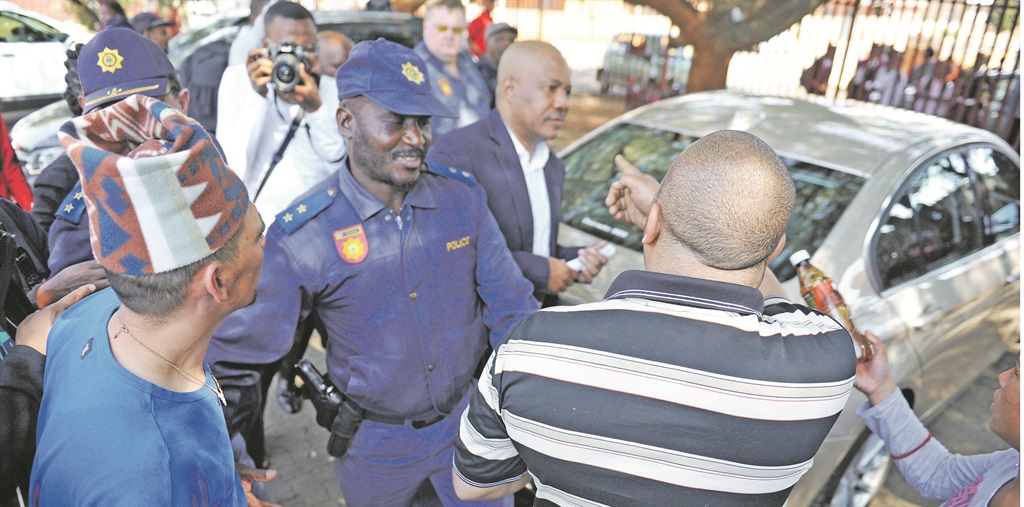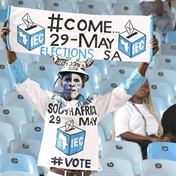
Twenty-one years into our supposedly nonracial democracy, it sadly appears that the combustible crisis at Roodepoort Primary School was mainly ignited by the refusal of many coloured parents to accept an African female principal and her deputy.
Although designated as a coloured school under apartheid, African pupils now form the overwhelming majority.
After allegations that such appointments were irregular, Gauteng education MEC Panyaza Lesufi ordered an investigation that cleared the department of any irregularities. The intriguing thing about this matter is that it happened in 2011. Why did it take the coloured parents so long to vent their spleen on so many heated issues?
If they deny any charges of racism for their chronic dissatisfaction, why are they still unhappy after KPMG, a reputable auditing firm, cleared the principal in an investigation into the finances at the school after parents alleged that fraud, corruption and maladministration had taken place there?
Furthermore, is it not unfair for the parents to continue to reject her if an investigation into her appointment and their allegations had cleared her?
It was hardly convincing when a Davidsonville Community Forum member, Theo van Rensburg, said in last week’s City Press that parents had “accepted 80 black kids and 16 black teachers into our school. It shows we are not racist. If we are racists, why did we allow all the other black teachers to remain at the school when we had problems?”
He spoke not only as if the school rightly belonged to coloured people, but that they were good and generous enough to “allow” African pupils and teachers into it. This has condescending racist connotations. We live in a nonracial constitutional democracy that allows African parents to place their children in any school of their choice.
What appears to reinforce an underlying racial bias is the fact that the coloured parents wanted the former deputy principal, a coloured man who was acting principal for three months in 2011, to return.
But the department said although he had applied for the post, he had failed to divulge essential information and it was on those grounds that he was not short-listed for the post.
It needs to prove this to the task team Lesufi appointed last week to investigate the crisis.
It is also evident that the acts of ugly, senseless and provocative violence by some coloured parents are not only counterproductive, but have widened the racial gulf and exacerbated tensions.
It is decidedly not what we need. The k-word was also reportedly used several times by angry coloured people when the media visited the area. That such vulgar racism is happening at a primary school where the inculcation of an antiracist ethos is so important makes this worse.
The racist demand that the principal be replaced by a coloured person for no good reason cannot and must not be acceded to. Besides the illegality of such action, it sets a bad precedent for other schools.
But what is the most tragic reality of this racial conflict is the fact that it occurs among largely working class communities that face similar economic circumstances. Instead of uniting behind their joint interests and concerns, they are at war with each other.
But it concerned me that the department failed, or refused, to respond to questions I put to it about the serious allegations Van Rensburg made in his City Press interview, including that the sealed envelopes containing the CVs of applicants for the post were opened, that an objection to this was raised but ignored, that department heads at the school were bypassed for the post of deputy principal and a junior teacher was appointed.
Its silence to these and other questions, like the claim in last week’s Sunday Times by Davidsonville Community Forum member Ronald Dyers that it was only after the financial books were stolen that KPMG was appointed to do an audit into corruption allegations, is concerning. These are serious allegations the department should have responded to.
The fact that it did not do this makes me wonder if this is a case where the full truth lies deeper and not simply with one or the other side, but somewhere between their different versions.
It will be interesting to read the findings and recommendations of the task team.
Harvey is a political analyst, commentator and author




 Publications
Publications
 Partners
Partners








